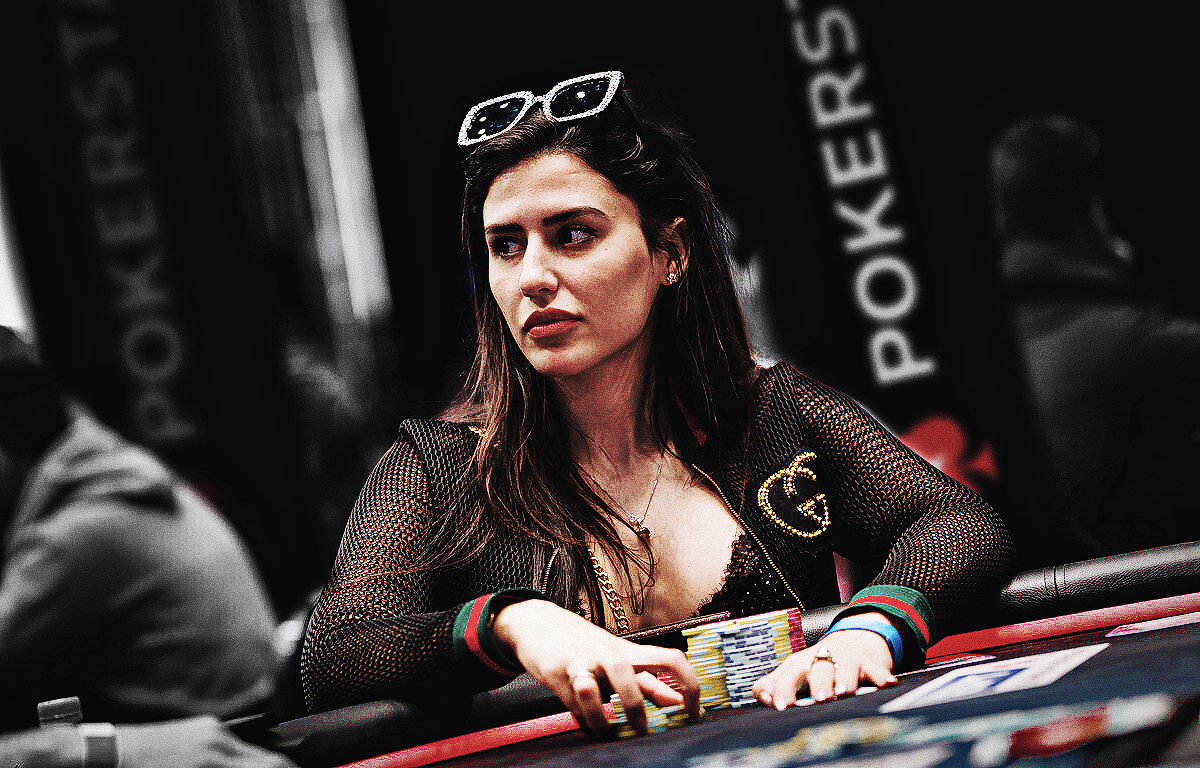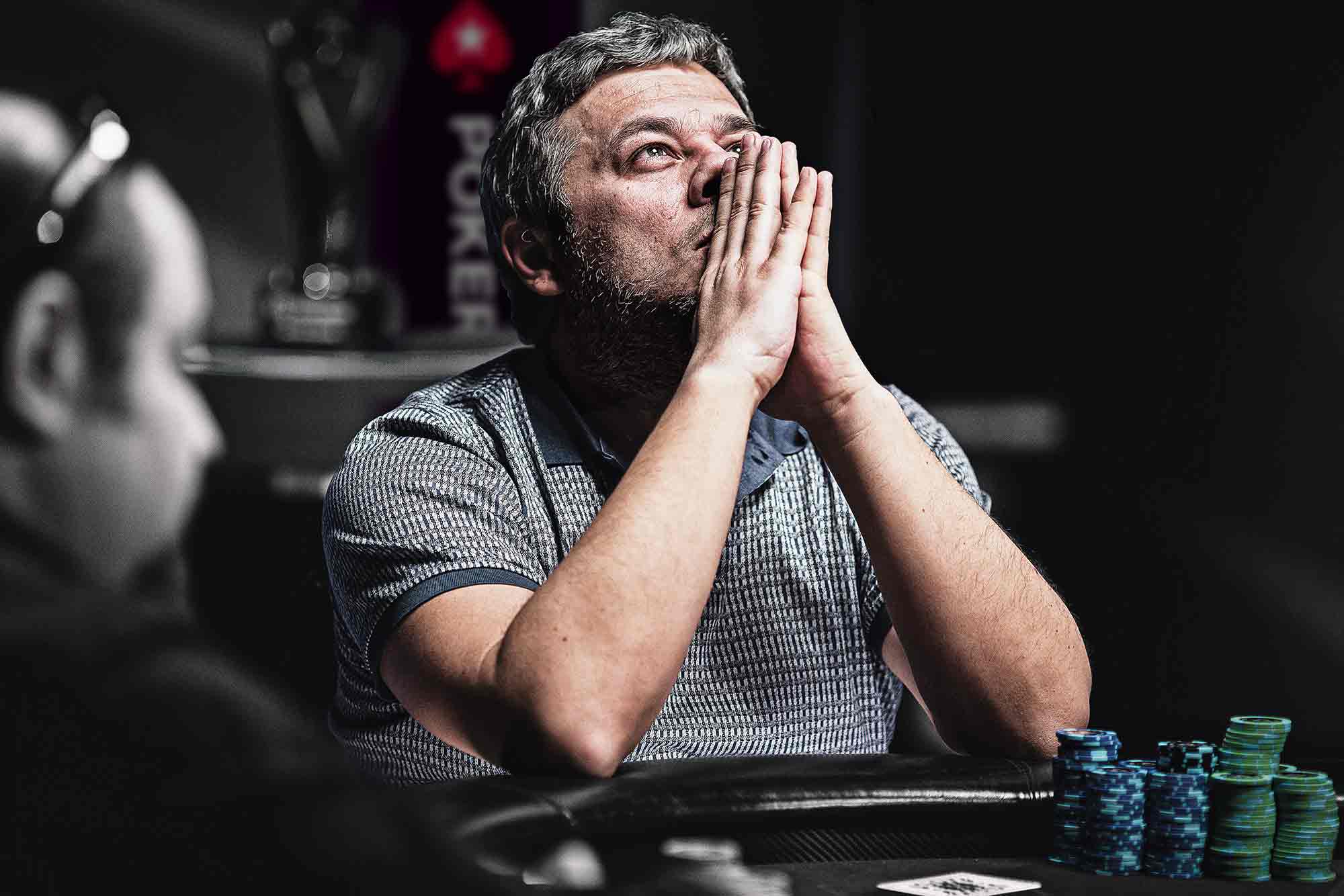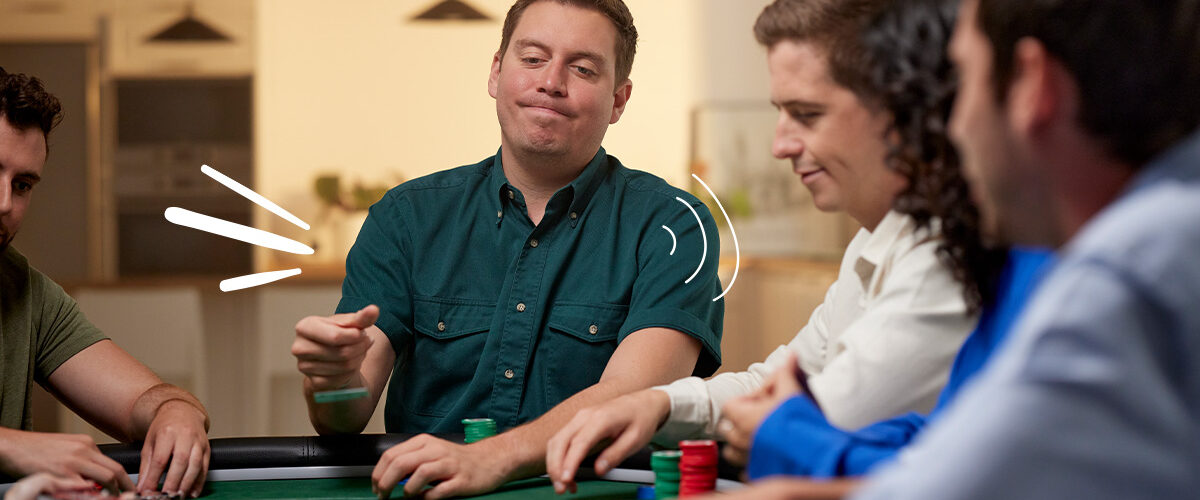Mental Game Pitfalls in Big Tournaments
When you step up to playing a larger tournament with a bigger buy-in than you are accustomed to there is more pressure of course, and with it, more scope for mental game problems to arise in your game. Some players like to use the word ’tilt’ to describe these issues, but I think this word is often taken to refer solely to the anger that follows some bad variance and the resulting dip in concentration and quality of decision-making.
The problem is that this narrow definition does not capture the vast array of what I call ’emotional interference’ in a poker player’s thought process. Let us explore some of the ways that our emotions might interfere with our optimal poker thought process in a big event and how we might conquer these unwanted afflictions.

Fear of Elimination
A common feeling after forking out the buy-in to a larger than normal event, is an unhelpfully strong attachment to your buy-in even after the tournament has begun. This can trigger a protective flight response where the poker player tries subconsciously at all costs to avoid elimination and scrape into the money. This risk adverse approach is highly detrimental to your chances of success. A long-term winning tournament player does not make a living by scraping through the bubble only to fizzle out and bust just inside of the payout structure. This is a sure losing approach due to the fact that in the majority of tournaments, no matter how great your skill edge, you are an underdog to make the money.
By playing more aggressively and taking favourable risks, you maximise your chances of going very deep into the event where the large payouts wait for the luckiest and strongest players. Sure, you have a higher chance of walking away empty-handed by taking these necessary risks, but your overall EV and return on investment (ROI) will be higher if you do so.
If your poker career is to extend beyond this event and you will be playing many higher stakes events in the future, it is vital to maximise your long-term EV. If you crave that big result, then put yourself in a position where, if the deck decides to hit you in the face, you are well placed to capitalize and grab the massive cash that transforms your poker career.
If you experience the symptoms of fear of elimination tilt such as making tight irrational folds simply to avoid the discomfort of variance, or playing a small-ball strategy where your normal style would be to build a larger pot, it is time to take a deep breath and to remind yourself of why you’re here. Winners of huge tournaments do not look back with hindsight and wish they had played safer. This could be your time – give yourself the best possible chance and make that big bluff that you suspect to be highly profitable.
Euphoric Disassociation
‘Euphoria’ is a word with pretty positive connotations, but too much of any emotion can be a dangerous thing for a poker player. You have eased through the bubble with one of the largest stacks in the tournament after winning three flips and playing a solid game for the last five hours. Your mind is tired, yet buzzing with adrenaline; the elusive big score is getting closer by the hand. This is exactly the point in the tournament where it is vital to refocus and enter a state of mind where all that matters is the logically solving the poker puzzle in front of you. It is essential to banish hopes and desires and to silence the part of your mind that keeps imagining what you might do with the prize money you have not yet won.
The reason this overly positive dream-like state of mind is so disastrous for your EV in the tournament is that it creates a numb bubble in which nothing seems to matter. Your brain is so full of endorphins due to the enormity of the best possible outcome (winning the event), and that outcome drawing closer, that you are making decisions as if on a mild anesthetic. This is obviously going to lead to a much lower degree of accuracy.
A small amount of endorphins is actually a healthy thing in the mind of a poker player due to the analgesic nature of these hormones. Moderate doses of endorphins create a barrier against negative thoughts and feelings and power us onwards in a pleasant state of mind. If we can reign in the euphoric explosion of having accumulated such a mighty stack, we can use a smaller amount of positive emotion as a catalyst for accessing our best game.
If you experience ‘euphoric disassociation’ at the poker table, feed yourself a dose of reality. You are liable to make quick careless blunders right now. Those 56,000 chips you could invest on this turn barrel are a very significant amount of big blinds. You are not invincible and a misstep could ruin your event. Take extra time over your choices, slow down your breathing and your heart rate and tread carefully until your brain restores its natural equilibrium.

Small Stack Desperation
Some tournaments are won by coasting through every stage, never on the wrong end of a bad beat or under pressure from the blinds. Plenty of tournaments, however, are salvaged from the dust. A ‘chip and a chair’ says the overused cliché. We’re all sick of hearing this, but it’s very true. One of the most common mistakes made by amateur tournament players is to give in to feelings of frustration and hopelessness when things are not going according to plan.
Let’s imagine that you are down to just 17 big blinds early on in the WCOOP main event after running into a horrible situation from which there was no escape. The average stack is around 60 big blinds. Needless to say, this is a lousy feeling. The temptation is to end the misery by either doubling up or busting out is almost irresistible.
A tight player opens from earlier position on the table and you shove your ATo in the CO. After all, what’s the point in hanging around now? This is a reasonable Ace – it will do. Maybe he just has 99 and we can flip? Huge mistake! There is almost no fold equity here, given your tiny stack and his Villain’s tight opening range. It is very typical for most players to lash out now with a completely unjustified wide range of hands so of course he is never folding his AQo.
You can do far better at this point than a 30% chance to double up. There are still a couple of orbits where your stack is healthy enough to re-steal shove, steal blinds and even make a continuation bet without going all-in on a flop. It might not be fun to knuckle down and wait for the most favourable double up opportunity, but you must embark on this mission.
Having the grit and determination to sit tight and tread water until a decent spot comes your way is one of the key skills, which allow a good tournament player to become a great one. Just imagine…what if your first major tournament win was to be one of those that happened by coming back from the brink of elimination? Your petulance and impatience might just make that win impossible. If you’re not prepared to enter a determined survival mode when the time comes, you will have to get very lucky indeed to go deep in a tournament.


